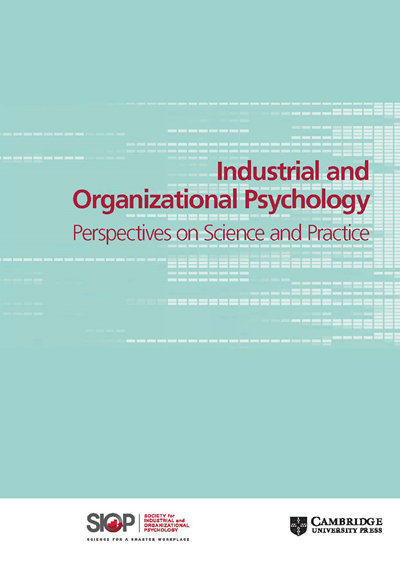A call to action: Taking the untenable out of women professors’ pregnancy, postpartum, and caregiving demands
IF 4.3
3区 心理学
Q1 PSYCHOLOGY, APPLIED
Industrial and Organizational Psychology-Perspectives on Science and Practice
Pub Date : 2023-05-09
DOI:10.1017/iop.2022.111
引用次数: 18
Abstract
Abstract Despite becoming increasingly represented in academic departments, women scholars face a critical lack of support as they navigate demands pertaining to pregnancy, motherhood, and child caregiving. In addition, cultural norms surrounding how faculty and academic leaders discuss and talk about tenure, promotion, and career success have created pressure for women who wish to grow their family and care for their children, leading to questions about whether it is possible for these women to have a family and an academic career. This paper is a call to action for academia to build structures that support professors who are women as they navigate the complexities of pregnancy, the postpartum period, and the caregiving demands of their children. We specifically call on those of us in I-O psychology, management, and related departments to lead the way. In making this call, we first present the realistic, moral, and financial cases for why this issue needs to be at the forefront of discussions surrounding success in the academy. We then discuss how, in the U.S. and elsewhere, an absence of policies supporting women places two groups of academics—department heads (as the leaders of departments who have discretion outside of formal policies to make work better for women) and other faculty members (as potential allies both in the department and within our professional organizations)—in a critical position to enact support and change. We conclude with our boldest call—to make a cultural shift that shatters the assumption that having a family is not compatible with academic success. Combined, we seek to launch a discussion that leads directly to necessary and overdue changes in how women scholars are supported in academia.行动呼吁:消除女教授在怀孕、产后和护理方面的不合理需求
尽管越来越多的女性学者出现在学术部门,但她们在处理与怀孕、母亲和照顾孩子有关的需求时,面临着严重缺乏支持的问题。此外,围绕教师和学术领袖如何讨论和谈论终身教职、晋升和事业成功的文化规范,给那些希望养家糊口、照顾孩子的女性带来了压力,导致了这些女性是否可能同时拥有家庭和学术事业的问题。本文呼吁学术界采取行动,建立支持女性教授应对怀孕、产后和照顾孩子等复杂问题的机制。我们特别呼吁我们这些I-O心理学、管理学和相关部门的人带头。在提出这一呼吁时,我们首先提出了现实的、道德的和经济的案例,说明为什么这个问题需要成为围绕学术界成功的讨论的前沿。然后,我们讨论了在美国和其他地方,缺乏支持女性的政策是如何将两类学者——部门主管(作为在正式政策之外有自由裁量权的部门领导,为女性提供更好的工作)和其他教职员工(作为部门和专业组织内的潜在盟友)——置于制定支持和变革的关键位置上的。最后,我们发出了最大胆的呼吁:进行一场文化变革,打破有家庭与学业成功不相容的假设。结合起来,我们寻求发起一场讨论,直接导致学术界如何支持女性学者的必要和迟来的变化。
本文章由计算机程序翻译,如有差异,请以英文原文为准。
求助全文
约1分钟内获得全文
求助全文
来源期刊

Industrial and Organizational Psychology-Perspectives on Science and Practice
PSYCHOLOGY, APPLIED-
CiteScore
7.70
自引率
10.10%
发文量
85
期刊介绍:
Industrial and Organizational Psychology-Perspectives on Science and Practice is a peer-reviewed academic journal published on behalf of the Society for Industrial and Organizational Psychology. The journal focuses on interactive exchanges on topics of importance to the science and practice of the field. It features articles that present new ideas or different takes on existing ideas, stimulating dialogue about important issues in the field. Additionally, the journal is indexed and abstracted in Clarivate Analytics SSCI, Clarivate Analytics Web of Science, European Reference Index for the Humanities and Social Sciences (ERIH PLUS), ProQuest, PsycINFO, and Scopus.
 求助内容:
求助内容: 应助结果提醒方式:
应助结果提醒方式:


